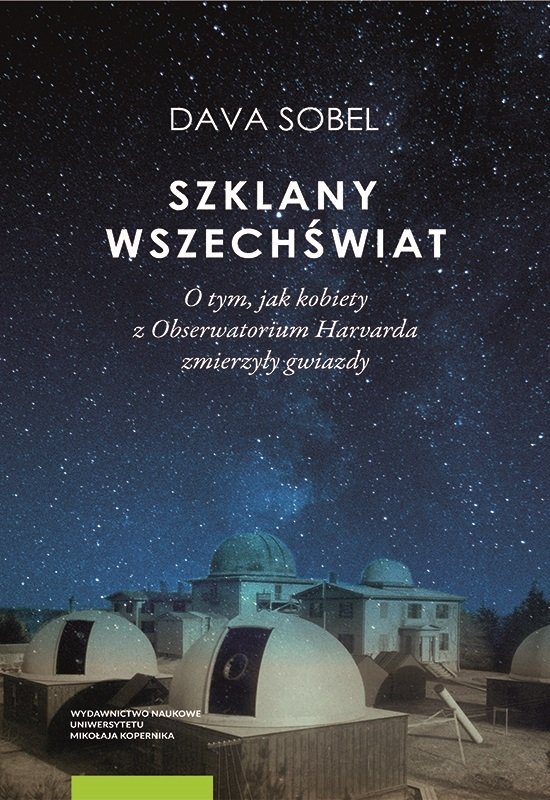Tłum. Dominik Liszkowski
W drugiej połowie XIX wieku Obserwatorium Harvarda zaczęło zatrudniać kobiety na stanowiskach obliczeniowców, tzw. ludzkich komputerów. Ich zadaniem było interpretowanie obserwacji teleskopowych wykonywanych co noc przez męskich pracowników instytucji. Początkowo grupa ta składała się z żon, sióstr i córek astronomów, ale wkrótce jej szeregi zasiliły absolwentki nowych college’ów dla kobiet – Vassar, Wellesley oraz Smith. Kiedy fotografia zmieniła sposób uprawiania astronomii, kobiety przeniosły uwagę z obliczeń na badanie gwiazd utrwalanych każdej nocy na szklanych płytach fotograficznych.
„Szklany wszechświat”, składający się z pół miliona płyt przez dekady gromadzonych przez Uniwersytet Harvarda, umożliwił kobietom dokonanie niesamowitych odkryć, dzięki którym ich nazwiska zajęły honorowe miejsce w dziejach astronomii. Były to: Williamina Fleming, Antonia Maury, Henrietta Swan Leavitt, Annie Jump Cannon oraz Cecilia Payne.
Książka Szklany wszechświat, wzbogacona fragmentami listów, dzienników i pamiętników, to ukryta historia kobiet, których wkład w rozwój astronomii na zawsze zmienił sposób rozumienia gwiazd oraz naszego miejsca we Wszechświecie.
In the second half of the 19th century, the Harvard College Observatory began to employ women as computational workers, the so-called human computers. Their task was to interpret telescopic observations made every night by the institution's male staff. At the beginning, this group consisted of the wives, sisters, and daughters of astronomers, but soon its ranks were joined by graduates of the new women's colleges: Vassar, Wellesley, and Smith. As photography changed the way in which astronomy was practiced, women shifted their focus from calculations to studying the stars recorded each night on glass photographic plates.
The"Glass Universe", consisting of half a million plates collected over decades by Harvard University, enabled women to make amazing discoveries that gave their names an honorable place in the history of astronomy. They were: Williamina Fleming, Antonia Maury, Henrietta Swan Leavitt, Annie Jump Cannon, and Cecilia Payne.
The Glass Universe, enriched with fragments of letters, diaries, and memoirs, is the hidden story of women whose contribution to the development of astronomy forever changed the way we understand the stars and our place in the Universe.






